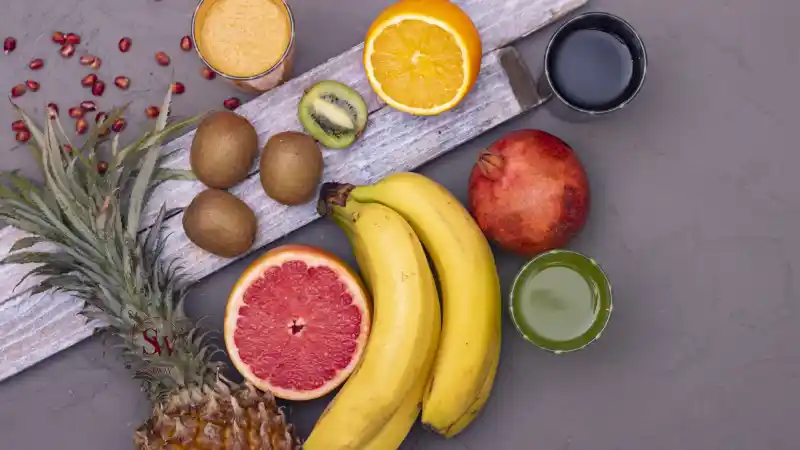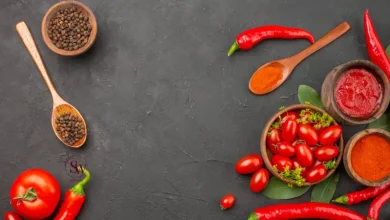
Foods to Avoid While Having Gestational Diabetes
Gestational diabetes is a condition that affects pregnant women, characterized by high blood sugar levels. Managing gestational diabetes requires making dietary changes to ensure a healthy pregnancy and prevent complications. While it’s essential to focus on nutritious foods, it’s equally important to be aware of foods to avoid. In this article of sisiway, we will discuss about foods to avoid during gestational diabetes and provide alternative options for a balanced and healthy diet.

-
Sugary and Sweetened Foods:
Foods high in added sugars, such as candy, cookies, cakes, and sugary beverages, should be avoided. These foods can cause a rapid rise in blood sugar levels, leading to spikes and complications. Opt for naturally sweet foods like fruits or choose sugar-free alternatives when necessary. You can replace sugary foods with Best Snacks for Type 2 Diabetes to maintain your health and the health of your baby during this period. These snacks will provide you with tasty alternatives that are suitable for individuals with type 2 diabetes.

-
Refined Carbohydrates:
Refined carbohydrates are a type of carbohydrate that has undergone processing, stripping away the fiber, vitamins, minerals, and phytochemicals present in the whole grain. The refining process results in a finer texture and longer shelf life but also reduces the nutritional value of the carbohydrate source. Refined carbohydrates are often found in common processed foods like white bread, white rice, sugary cereals, pastries, and sweetened beverages. These foods are typically high in calories, low in fiber, and have a higher glycemic index, meaning they can cause a rapid spike in blood sugar levels when consumed.
Regularly consuming refined carbohydrates can have negative health implications. Their low fiber content can lead to digestive issues and contribute to a less satisfying and less filling diet. Moreover, the rapid increase in blood sugar levels caused by refined carbohydrates can strain the body’s insulin response and increase the risk of developing type 2 diabetes. Additionally, diets high in refined carbohydrates have been associated with obesity, cardiovascular diseases, and other metabolic disorders. To promote better health, it is advisable to limit the intake of refined carbohydrates and instead focus on incorporating whole grains, fruits, vegetables, and fiber-rich foods into the diet for a more balanced and nutrient-dense approach.

-
Processed and Fried Foods:
One of the most important foods to avoid during gestational diabetes is processed and fried foods. Processed foods, such as packaged snacks, fast food, and fried foods, are often high in unhealthy fats, sodium, and added sugars. They offer little nutritional value and can negatively impact blood sugar levels. Instead, opt for homemade meals prepared with fresh ingredients, lean proteins, and healthy cooking methods like baking, grilling, or steaming.
-
High-Fat Dairy Products:
Full-fat dairy products like whole milk, cream, and high-fat cheeses contain saturated fats that can increase insulin resistance. Choose low-fat or skim dairy options to reduce unhealthy fats while still obtaining important nutrients like calcium and protein.
-
Sweetened Beverages:
Sugar-sweetened beverages like soda, fruit juices, and sweetened iced tea can cause rapid spikes in blood sugar levels. It’s best to choose water, unsweetened herbal tea, or infused water with fresh fruits for hydration instead. When managing gestational diabetes, it is recommended to prioritize healthier beverage options. Water is the best choice as it is calorie-free and helps maintain hydration. Unsweetened herbal teas or infusions can also be enjoyed as a flavorful and sugar-free alternative. If craving a fruity taste, opting for naturally flavored water or infusing water with slices of fresh fruit can provide a hint of flavor without the added sugars.
-
High Sodium Foods:
High-Sodium foods are also included in the category of foods to avoid during gestational diabetes. Foods high in sodium, such as processed meats, canned soups, and fast food, can contribute to fluid retention and increase the risk of high blood pressure. Opt for fresh, whole foods and use herbs and spices to add flavor instead of relying on excess salt.
-
High Glycemic Fruits:
While fruits are generally healthy, some have a higher glycemic index, meaning they can cause a rapid increase in blood sugar levels. Avoid or limit fruits like watermelon, pineapple, and ripe bananas. Instead, opt for lower glycemic fruits such as berries, apples, and citrus fruits.

-
High-Fat Meats:
Fatty cuts of meat, such as processed meats, bacon, and high-fat ground beef, should be limited. They can contribute to weight gain and increase the risk of insulin resistance. Choose lean protein sources like skinless chicken, turkey, fish, and legumes.
-
Certain Starchy Vegetables:
It may seem strange, but some vegetables are also included in the category of foods to avoid during gestational diabetes. Some starchy vegetables, including white potatoes and corn, are high in carbohydrates and can affect blood sugar levels. Instead, choose non-starchy vegetables like leafy greens, broccoli, cauliflower, and zucchini, which have fewer carbs and provide more fiber and nutrients.
-
Sugary Condiments and Sauces:
Condiments and sauces like ketchup, barbecue sauce, and sweet dressings often contain added sugars. Read labels carefully and opt for sugar-free or low-sugar alternatives. Consider using herbs, spices, and vinegar-based dressings to add flavor without added sugars.

-
High-Sugar Breakfast Cereals:
Many breakfast cereals on the market are high in sugar and refined grains. These can cause blood sugar spikes and leave you feeling hungry shortly after eating. Choose cereals that are whole grain, high in fiber, and low in added sugars. Alternatively, opt for oatmeal or homemade granola with no added sugars. Start your day in the healthiest way possible by choosing The Perfect Healthy Breakfast Meal. It will help you kickstart your day with nutritious and delicious options.
-
Alcohol and Caffeinated Beverages:
Alcohol should be avoided during pregnancy, and caffeinated beverages should be consumed in moderation. Both can affect blood sugar levels and may have adverse effects on the developing baby. Stay hydrated with water, herbal tea, and decaffeinated beverages. While alcohol is included in the category of foods to avoid during gestational diabetes, it is advised not to consume alcohol during pregnancy even if you do not have this condition.

Gestational Diabetes Fruits to Avoid
When it comes to managing gestational diabetes, it’s important to be mindful of the fruits you consume due to their impact on blood sugar levels. While fruits are generally healthy, some have a higher glycemic index, meaning they can cause a rapid increase in blood sugar levels. Here are a few fruits that are higher in natural sugars and may need to be limited or consumed in moderation:
Watermelon:
Watermelon has a high glycemic index and can cause a significant increase in blood sugar levels. It’s best to consume it in small portions and pair it with a source of protein or healthy fat to minimize the impact on blood sugar.
Pineapple:
Pineapple is another fruit that can raise blood sugar levels due to its natural sugar content. It’s advisable to consume it in moderation and combine it with other foods that have a lower glycemic load.

Ripe Bananas:
Ripe bananas have a higher sugar content compared to unripe ones. They can cause a rapid increase in blood sugar levels. Opt for unripe or green bananas, which have a lower glycemic index and provide more resistant starch.
Mangoes:
Mangoes are delicious tropical fruits but are higher in natural sugars. It’s important to be mindful of portion sizes and pair them with protein or healthy fats to help slow down the absorption of sugar into the bloodstream.
Grapes:
Grapes, particularly the sweeter varieties, can have a higher glycemic index and may cause a quick rise in blood sugar levels. Limit your portion size and pair them with a source of protein or fat to mitigate the impact on blood sugar.

Dates:
Dates are sweet and have a high natural sugar content. While they offer some nutritional benefits, they can cause significant spikes in blood sugar levels. It’s best to consume them sparingly and in small amounts.
Pomegranates:
Pomegranates are known for their vibrant color and antioxidant properties. However, they do contain natural sugars and can impact blood sugar levels. Enjoy pomegranates in small portions and consider incorporating the seeds into salads or pairing them with protein-rich foods.
Dried Fruits:
Dried fruits, such as raisins, dried apricots, and dried cranberries, are concentrated sources of natural sugars. They can cause a rapid increase in blood sugar levels due to their reduced water content. It’s best to consume dried fruits sparingly and opt for fresh fruits whenever possible.
Figs:
Figs are sweet and rich in fiber, but they also contain natural sugars. Moderation is key when consuming figs, as they can affect blood sugar levels. Consider enjoying fresh figs in smaller quantities and balancing them with other low-glycemic foods.
Sweetened Fruit Juices:
Fruit juices, especially those with added sugars, can lead to a quick rise in blood sugar levels. It’s recommended to avoid sweetened fruit juices altogether and opt for whole fruits instead. If you do choose to drink fruit juice, opt for freshly squeezed varieties without added sugars and consume them in moderation.
While these fruits may need to be limited, it’s important to note that every person’s tolerance to fruits can vary. Some individuals with gestational diabetes may be able to tolerate small portions of these fruits without significant spikes in blood sugar levels. It’s recommended to monitor your blood sugar levels after consuming different fruits and work closely with a healthcare professional or a registered dietitian who can provide personalized guidance based on your specific needs.
In general, it’s advisable to focus on consuming lower glycemic fruits such as berries (strawberries, blueberries, raspberries), apples, pears, cherries, and citrus fruits (oranges, grapefruits) as they have a lesser impact on blood sugar levels. Remember to always pair fruits with a source of protein or healthy fat to help stabilize blood sugar levels and promote better glycemic control
By being mindful of your food choices and making healthier alternatives, you can maintain stable blood sugar levels, support a healthy pregnancy, and reduce the risk of complications associated with gestational diabetes.
FAQ
- Can I never eat sugary foods or desserts if I have gestational diabetes?
While it’s important to limit or avoid foods high in added sugars, it doesn’t mean you can never enjoy a sweet treat. It’s best to choose healthier alternatives and consume them in moderation. Opt for sugar-free or low-sugar options, such as desserts sweetened with artificial sweeteners or naturally sweetened with fruits. Additionally, consider healthier dessert options like fruit salads, Greek yogurt with berries, or homemade treats using sugar substitutes.
- Why should I avoid processed and fried foods during gestational diabetes?
Processed and fried foods are often high in unhealthy fats, added sugars, and sodium. They offer little nutritional value and can lead to weight gain and elevated blood sugar levels. These foods can also increase the risk of complications associated with gestational diabetes. Instead, focus on whole, unprocessed foods prepared with healthier cooking methods like baking, grilling, or steaming. This allows you to obtain essential nutrients while keeping your blood sugar levels stable.
- Are all fruits off-limits if I have gestational diabetes?
No, not all fruits are off-limits if you have gestational diabetes. While some fruits may have a higher sugar content, they can still be enjoyed in moderation. It’s important to consider the glycemic index and glycemic load of fruits. Choose lower glycemic fruits like berries, apples, pears, and citrus fruits, which have a lesser impact on blood sugar levels. Remember to pair fruits with a source of protein or healthy fat to help slow down the absorption of sugar into the bloodstream.
Conclusion:
Maintaining a balanced and healthy diet is crucial for managing gestational diabetes. By avoiding sugary and processed foods, opting for whole grains, lean proteins, and healthy fats, and staying hydrated with low-sugar beverages, pregnant women can better control their blood sugar levels. Remember to consult with a healthcare professional or a registered dietitian who can provide personalized guidance and support throughout your pregnancy journey. With proper nutrition and lifestyle choices, you can promote a healthy pregnancy and reduce the risks associated with gestational diabetes.
Also read: Is Type 2 Diabetes Preventable



